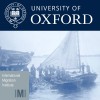THEMIS: Changing migration opportunity structures of Roma and their hosting societies: The case of Belgium
The overthrowing of the socialist regimes in Eastern Europe lead to different societies, with more freedom on the one hand, but disappearing social safety nets, economic disruption and often booming unemployment, especially amongst ethno-cultural minorities like the Roma. As a result of the accession of Eastern European countries, some communities saw their "migration opportunity structures" change dramatically. This had lead to increasing numbers of Eastern European migrants with a Roma background in other European countries. Roma populations are on a policy level often approached as one homogenous group. The Roma themselves are however an extremely heterogeneous group having different nationalities, speaking different languages, adhering to different religions, having different visions and experiences on the labour market an defining themselves in different ways as Roma, Sinti, Kalderash, ... . There live in the different European countries, some are EU citizens and some not. Some rely heavily on social security benefits and others work and provide for their own sustenance. But there are many common characteristics: they have been (often suppressed) minorities for centuries, they have extended networks spread over different countries and they have specific forms of organization. The question that can be raised is what exactly makes them Roma? Is it the fact that they are very often poor, is it a ‘culture of poverty" or is it a "Roma culture"? Is the migration of these ethno-cultural minorities to (other) EU countries a "Roma migration" or a migration of Roma individuals?
The paper proposed will address this issue and look at the dynamic of new Roma migration, on the "push and pull" factors (reaction of host societies), at opportunity structures and networks. The data used in this paper results from an analysis of international research on the one hand and of a research project executed in Belgium in 2012.




